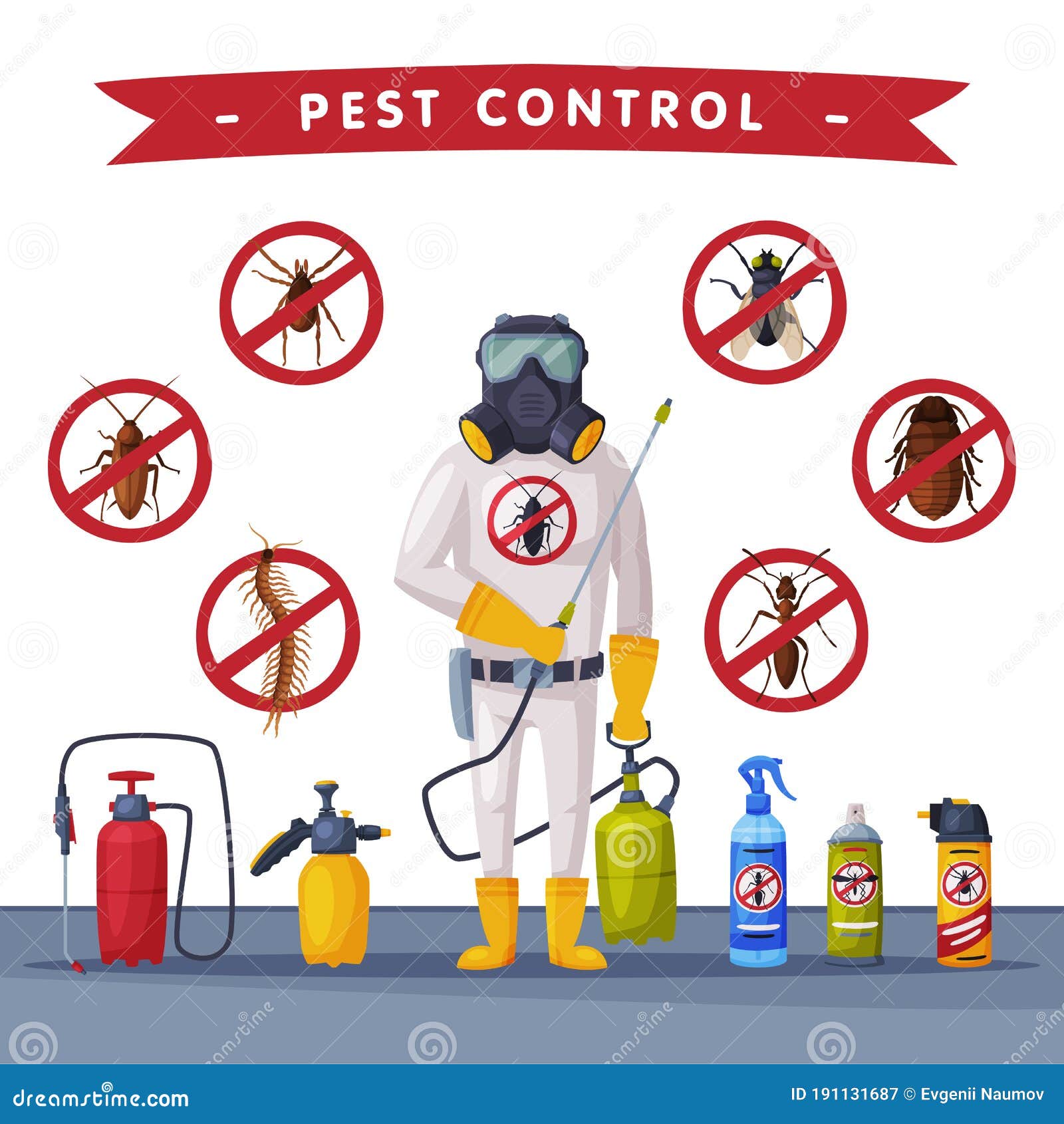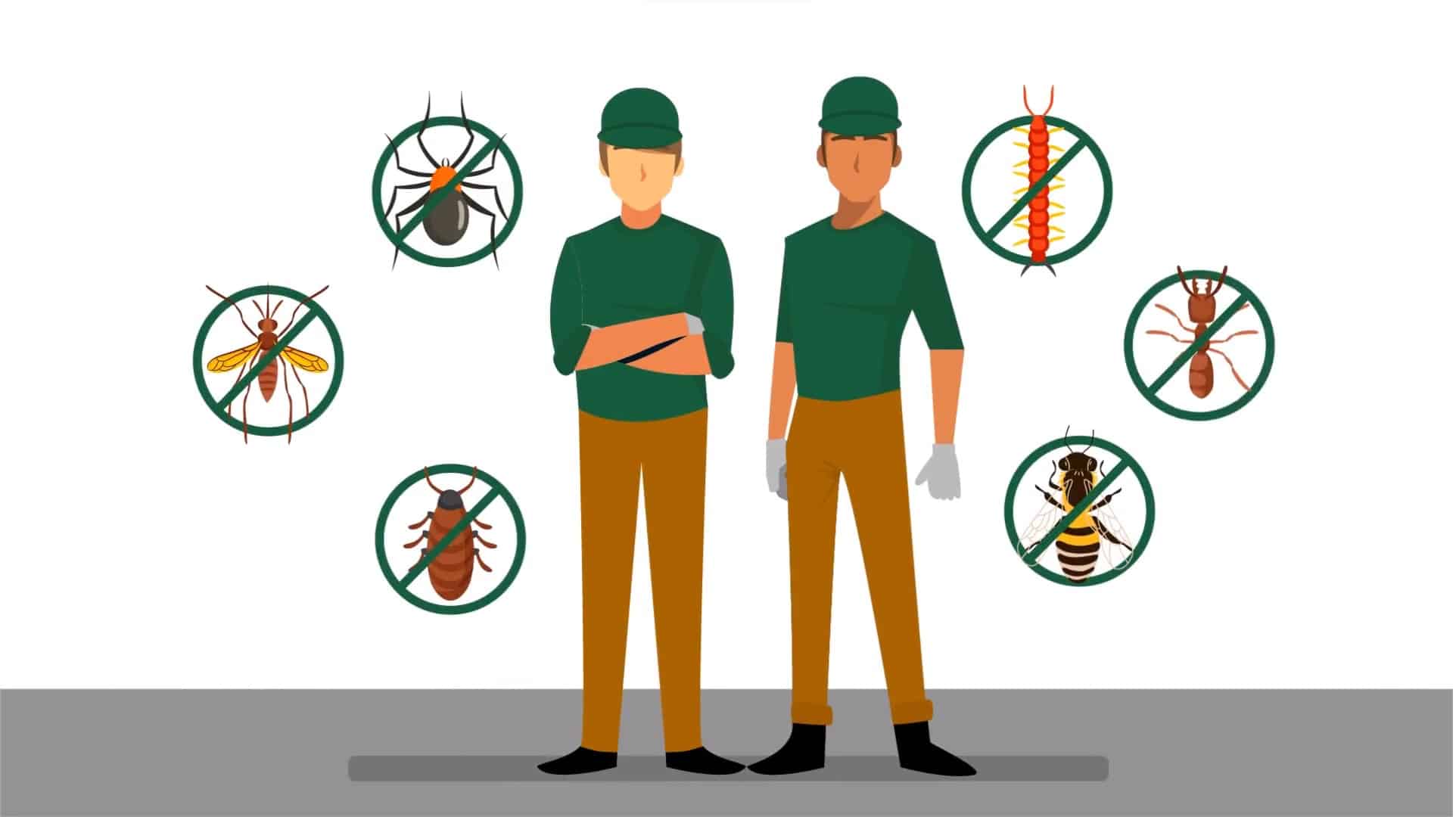Expert Commercial Pest Control Service in Port Charlotte
Comprehensive Overview to Recognizing Bug Control Methods and Their Treatment
Comprehending parasite control techniques is essential for efficient monitoring of unwanted microorganisms that pose threats to health and wellness, farming, and home. What factors should be considered when choosing the ideal bug control technique for a specific situation?
Review of Bug Control Methods
Insect control approaches incorporate a selection of strategies developed to take care of and get rid of undesirable organisms that can hurt human health and wellness, farming, and residential property. Efficient insect management is crucial for preserving the honesty of ecological communities and making sure the safety of food products. These approaches can be broadly categorized right into 3 key approaches: social, mechanical, and organic controls.

Social control entails customizing farming methods or environmental conditions to decrease insect establishment and reproduction. Mechanical control relies on physical barriers or devices to protect against insect accessibility or straight remove them.
Organic control utilizes natural predators, bloodsuckers, or virus to control pest populations. This technique highlights ecological balance and can include introducing advantageous bugs, such as ladybugs or aggressive nematodes, to manage pest existence.
Integrated pest monitoring (IPM) incorporates these approaches, using an all natural technique that emphasizes avoidance, surveillance, and responsible monitoring. By using a blend of these methods, parasite control can be a lot more sustainable and reliable, lessening reliance on chemical treatments while protecting human health and the atmosphere.

Chemical Parasite Control Solutions
A range of chemical pest control remedies are readily available, providing reliable options for taking care of parasite populaces when other techniques may fail. These options primarily include pesticides, herbicides, fungicides, and rodenticides, each designed to target certain pests while lessening harm to non-target organisms.
Insecticides are specifically efficient against an array of pests, consisting of ants, roaches, and termites, and can be classified as contact or systemic agents. Contact pesticides eliminate parasites on call, while systemic insecticides are soaked up by plants, making them hazardous to pests that prey on them. Herbicides are made use of to manage undesirable plant life, whereas fungicides are important for managing fungal illness that can damage plants and ornamental plants.
Additionally, integrated parasite monitoring (IPM) concepts need to be used, incorporating chemical remedies with social, mechanical, and biological methods for lasting pest control. This holistic approach not only boosts pest monitoring efficiency yet likewise lowers prospective ecological impacts associated with chemical usage.
Organic Insect Control Techniques
Biological parasite control methods provide an ecologically friendly option to chemical methods by utilizing all-natural killers, bloodsuckers, or virus to take care of bug populaces. This technique leverages the eco-friendly connections between organisms, promoting a well balanced ecological community while reducing chemical deposit in the environment.
One of one of the most usual organic control methods involves the introduction of all-natural adversaries. For example, ladybugs are utilized to control aphid populaces, while parasitical wasps can target caterpillars and other pests. These natural killers properly straight from the source decrease pest numbers without harming beneficial pests.
In addition, microbial representatives such as microorganisms, fungi, and viruses are used to infect and kill particular pests. Bacillus thuringiensis (Bt), a naturally happening germs, is extensively used to manage caterpillars and other larvae, showcasing the efficiency of microbial insect control.

Physical and Mechanical Techniques
Frequently used in incorporated parasite monitoring approaches, physical and mechanical methods work as reliable devices for controlling insect populations without using chemicals. These techniques count on physical obstacles, traps, and other mechanical tools to avoid or get rid of insects, making them eco-friendly options.
Physical techniques include making use of barriers such as insect netting, displays, or row covers that physically block pests from accessing plants. This is especially beneficial in farming setups where plant security is necessary. Additionally, environment adjustment, such as eliminating debris and standing water, can lower bug reproducing websites, thereby reducing problems.
Mechanical approaches incorporate catches, which can be created to record details bugs. Sticky traps and scent catches prevail examples that tempt and preserve insects, facilitating tracking and control. Vacuuming is another mechanical method, reliable for removing parasites from indoor settings, specifically in cases of infestations.
Preventative Parasite Management Techniques
Reliable preventative pest management techniques are important for maintaining healthy environments and minimizing pest-related concerns prior to they develop (Pest Control in Port Charlotte, FL). These techniques concentrate on positive steps that decrease the likelihood of bug infestations by dealing additional reading with the origin

Another crucial technique involves correct landscape design methods (Pest Control in Port Charlotte, FL). Keeping plant life cut and away from buildings can reduce harborage areas for insects. Similarly, carrying out integrated pest administration (IPM) techniques that include keeping an eye on parasite populations and using organic controls can foster a well balanced community that naturally subdues pest numbers.
Education and training for personnel and residents on identifying early indicators of insect task are likewise crucial parts of an efficient preventative program. By cultivating an environment of awareness and caution, companies and homeowners can significantly improve their parasite monitoring efforts and protect their areas versus future problems.
Conclusion
In verdict, effective bug control calls for a multifaceted strategy that incorporates chemical, biological, and mechanical techniques. Utilizing an Integrated Bug Administration (IPM) structure enables for the lasting administration click for source of pests while reducing ecological effect. Preventative approaches additionally boost the efficacy of these methods, ensuring lasting defense of health and wellness, agriculture, and property. Ultimately, a comprehensive understanding of these varied parasite control techniques is vital for accomplishing successful results in insect management campaigns.